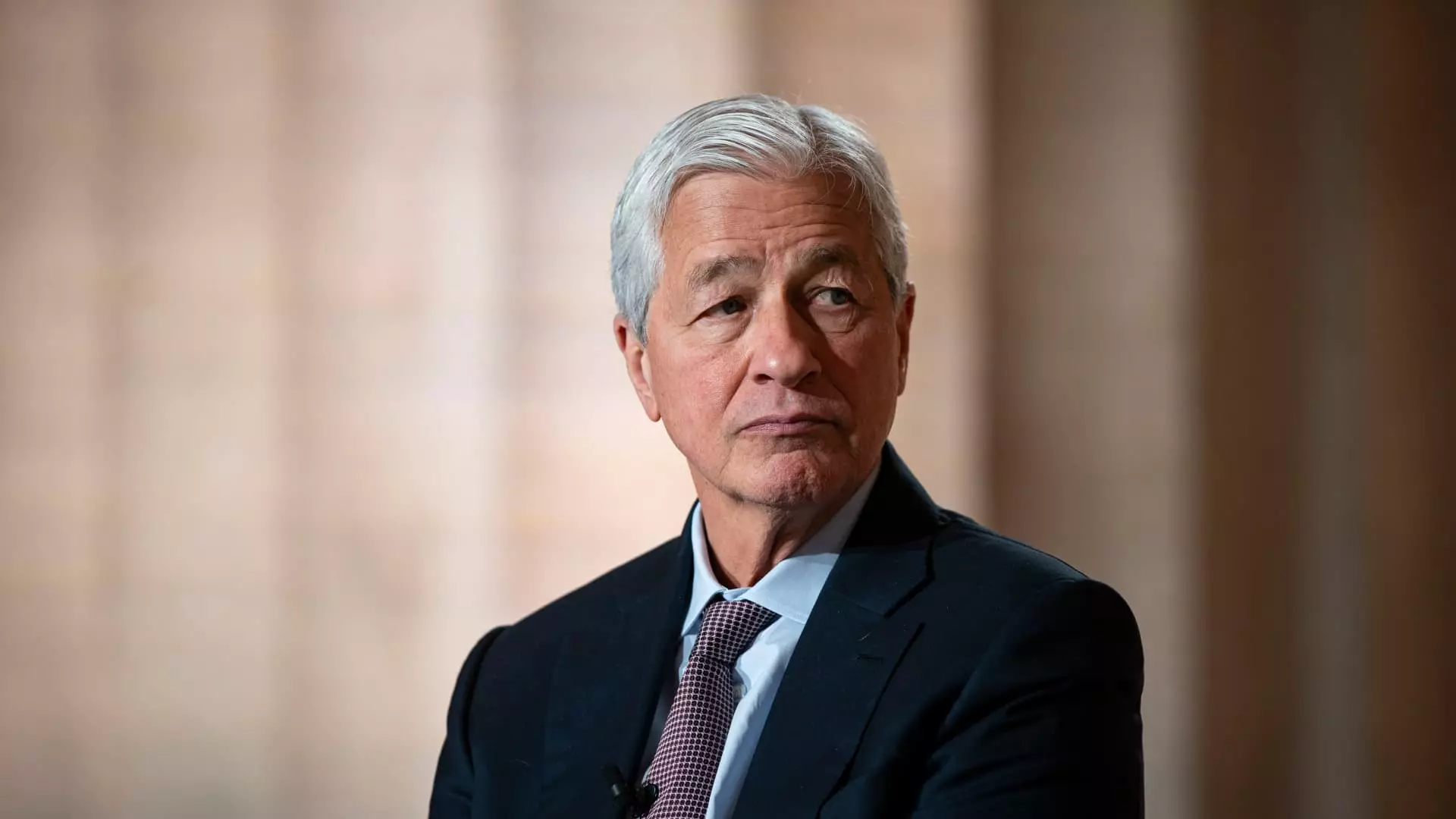As uncertainties loom over the U.S. economy, the words of JPMorgan Chase CEO Jamie Dimon resonate with growing urgency. Dimon’s prediction of an impending recession showcases not only a sobering perspective, but also underlines the interconnectedness of global markets and local economies. His insights should serve as a wake-up call for policymakers who seem more intent on shuffling the deck chairs rather than addressing the underlying instability precipitated by aggressive tariff strategies and unpredictable geopolitical tensions.
When Dimon remarks on a probable recession resulting from the tumultuous trading environment — particularly the simmering U.S.-China trade war — he is tapping into a sentiment that has begun to circulate among investors and the broader public. The fear of a recession doesn’t stem solely from theoretical analysis; it arises from real-world implications that impact everyday Americans. When markets tumble, as evidenced by the over 2,000-point drop in the Dow, the anxiety trickles down into personal finance, hitting retirement plans and cash flow hard. A turbulent stock market does not just represent numbers; it translates into emotional distress for individuals contributing to 401(k)s, whose hard-earned savings seem perpetually on the brink of loss.
The Consequences of Tariffs: A Double-Edged Sword
What should be particularly alarming is the developing narrative surrounding tariffs. Once heralded as necessary tools for protecting national interests, tariffs have become catalysts for uncertainty. Dimon’s earlier stance in support of tariffs stands in stark contrast to his recent warnings. The dynamic nature of global trade — and the sometimes-punitive character of tariffs — illustrates why a trade war can escalate quickly, leaving untold repercussions in its wake. The sharp increase in tariffs on U.S. goods levied by China exemplifies how retaliatory measures create an environment of fear and market volatility.
The dire figures speak for themselves: with futures down by more than 800 points and soaring Treasury yields indicating declining confidence, the market is signaling a collective worry. Consumers cautious about spending, anticipating layoffs or reduced income, will inevitably depress economic activity. It is a vicious cycle, one that could be mitigated by rational negotiation and diplomacy — yet, the prevailing atmosphere seems focused on brinkmanship rather than resolution.
The Role of Consumer Sentiment
Dimon’s insights regarding consumer sentiment deserve particular attention. This isn’t just about numbers; it’s about human behavior, which can be volatile and unpredictable. The more that consumers feel their financial well-being is threatened, the less they will spend. Businesses depend on consumer confidence to sustain growth and foster an environment of innovation. A narrative fueled by fear and recession talk doesn’t only drive stock prices lower; it can choke off economic growth and stall an already fragile recovery.
It’s crucial for government actors to engage with economic leaders, like Dimon, in honest discussions about actionable plans. Historical patterns can repeat themselves, and when business leaders predict doom and gloom, markets often take heed. The influence of negative rhetoric shouldn’t be underestimated; it can shift public perception and spending habits almost instantaneously.
A Call for Pragmatism Over Ideology
As Dimon advocates for strategic trade agreements rather than impulsive tariffs, he presents a vision of pragmatism that is sorely needed in today’s political climate. Trade deals should not be viewed through a lens of combative nationalism but rather as opportunities for mutual benefit. In doing so, it becomes clear that aiming for economic stability and stronger international relationships should supersede the desire for immediate retribution.
In a time when the political discourse is increasingly mired in polarization, we stand at a crossroads. Echoing Dimon’s sentiments, it’s critical that we abandon ideological rigidity and embrace dialogue informed by economic realities. The stakes are too high; a recession not only undermines growth but also erodes public trust in governmental and financial institutions. As we navigate this precarious moment, embracing collaboration over animosity could be the difference between resurgence and recession.
While Dimon’s commentary may reflect a sense of pessimism, it is a necessary mirror reflecting both the fragility of the current economic landscape and the urgent need for a measured response. With the future hanging in the balance, it’s time for leadership that prioritizes pragmatism, foresight, and the welfare of the nation’s citizens over narrow political gains.


Leave a Reply